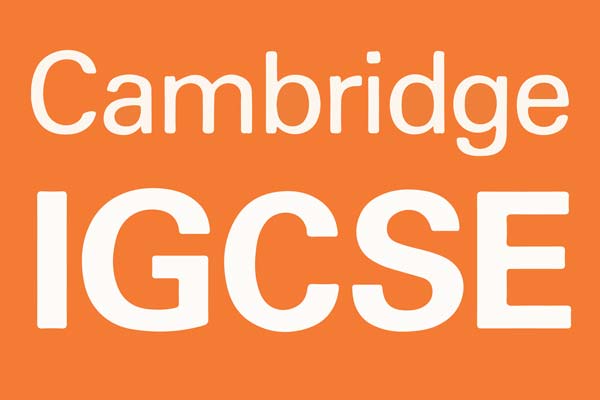Cambridge vs. Edexcel: A Comparison of Two Popular Exam Boards
When it comes to academic qualifications, choosing the right exam board is a crucial decision that can significantly impact a student’s educational journey. Edexcel and Cambridge are two prominent names often in this discussion. Here’s a closer look at what each exam board entails.
Cambridge International Examinations (CIE)
Cambridge International Examinations, commonly known as CIE, is a department of the University of Cambridge that provides international qualifications for students aged 5 to 19.
Cambridge International Examinations (CIE) provides a range of globally recognized qualifications, such as IGCSE, O Level, AS Level, and A Level, accepted by universities and employers worldwide.
CIE examinations emphasize cultivating critical thinking, problem-solving, and research abilities through their rigorous and demanding nature.
Pearson Edexcel
Pearson Edexcel is a division of Pearson, a multinational education company based in the UK. Edexcel offers a range of qualifications, including GCSE, IGCSE, AS Level, and A Level, which are recognized by universities and employers worldwide.
Edexcel exams are designed to be accessible and flexible, focusing on developing practical skills and knowledge that can be applied in real-world settings.
Exam Board
The Cambridge Assessment International Education (CAIE) offers A-levels on the Cambridge curriculum, while Pearson Edexcel offers A-levels on the Edexcel curriculum.
The main differences between A-levels on the Cambridge curriculum and A-levels on the Edexcel curriculum are the structure and curriculum followed in both.
UK vs. International Qualifications
One of the critical distinctions between the Cambridge International Examinations (CIE) and Pearson Edexcel is that CIE exams are considered equal in difficulty level. In contrast, Edexcel exams are more focused on the UK system.
This means that CIE exams may be more suitable for students looking to study abroad or pursue international careers. In contrast, Edexcel exams may be ideal for students planning to study in the UK.
Qualifications Overview
Cambridge Qualifications
Cambridge International Examinations (CIE) offers a range of academic and vocational qualifications for students of all ages. Their qualifications are recognized globally and are accepted by leading universities and employers worldwide.
Cambridge qualifications help students succeed in college and beyond. The IGCSE is a well-known option for students aged 14-16, similar to the UK GCSE.
Cambridge IGCSEs are tiered examinations, meaning students can take the exam at either the foundation or higher level, depending on their ability.
🌟 Hey Students! 🚀 Ready for the ultimate experience? Join us on Studentsinside.com's Facebook, YouTube, WhatsApp, and LinkedIn. Click now for tips, fun, and success vibes! 🌈✨ #StudentLife #JoinUs
Cambridge International A-levels are designed for students aged 16-19 and are recognized by universities and employers worldwide. They are tiered examinations, with students taking exams at the AS and A2 level. Students can choose from various subjects, including science, humanities, and languages.
Edexcel Qualifications
Edexcel International GCSEs are designed for students aged 14-16 and are recognized by universities and employers worldwide. They are tiered examinations, meaning students can take the exam at either the foundation or higher level, depending on their ability.
Edexcel A-levels cater to students aged 16-19 and enjoy global recognition by universities and employers. These exams are structured in two tiers: AS and A2 levels. Students have diverse subjects, spanning sciences, humanities, and languages.
Curriculum and Structure
Cambridge Curriculum
Cambridge International Examinations (CIE) and Pearson Edexcel differ in their approach to curriculum and structure. CIE offers a standardized curriculum that is followed by students all over the world.
The curriculum is designed to be challenging and comprehensive, covering various subjects, including mathematics, physics, and science.
The CIE syllabus is thoughtfully crafted to remain current and applicable, preparing students to address contemporary challenges confidently. It integrates real-world scenarios, fostering critical thinking and the practical application of knowledge.
Edexcel Structure
On the other hand, Pearson Edexcel follows a more structured approach to curriculum and syllabus content. The Edexcel syllabus is designed to focus more on the UK system, with a strong emphasis on core subjects such as mathematics and science.
Edexcel offers a tiered examination system, which allows students to enter at either a foundation or a higher level. The more difficult questions are presented only at the higher levels.
This system is designed to ensure that students are challenged appropriately and not overwhelmed by the difficulty of the questions.
In terms of difficulty, Cambridge’s curriculum is generally considered more challenging than Edexcel’s, although unified grading ensures fairness in assessment.
However, the choice between the two ultimately depends on the student’s interests and goals.
Assessment Methods
Cambridge Assessment
Cambridge International Examinations (CIE) and Pearson Edexcel have different approaches to assessment methods. CIE A-levels are assessed through a combination of written exams and coursework.
The coursework component is at the school’s discretion, while written exams typically occur in May and June, with results available in August.
Cambridge International Examinations also offers a tiered examination system for some subjects. This means that students can enter at either the foundation or higher level.
The higher-level papers contain more difficult questions, while foundation-level papers have simpler questions. This system offers students more flexibility in choosing the level of difficulty that suits them.
Edexcel Assessment
Edexcel International A-levels are primarily assessed through written exams. There are no practical assessments for the Edexcel International GCSE and A-Level Biology, Physics, and Chemistry. The exams usually occur in May and June, and the results are released in August.
Edexcel International A-levels do not have a tiered examination system. All students sit the same exam, and the grade boundaries are set based on the performance of all students who took the exam. This means that the difficulty level of the exam is the same for all students.
Recognition and Reputation
University Recognition
Regarding university recognition, both Cambridge and Edexcel A-levels are widely accepted by universities worldwide. However, some universities may prefer one exam board over the other.
For instance, the University of Cambridge may prefer applicants with Cambridge A-levels, while other universities may not have a preference.
It is essential to note that universities usually consider other factors besides the exam board, such as the student’s grades, extracurricular activities, and personal statements.
Therefore, while the exam board is a crucial factor, it is not the only one universities consider when making admissions decisions.
Employer Recognition
Employers also recognize both Cambridge and Edexcel A-levels. However, some employers may prefer one exam board over the other.
For instance, some employers may consider Cambridge A-levels more prestigious and a sign of academic excellence.
However, it is crucial to note that employers usually consider other factors besides the exam board, such as the candidate’s work experience and interpersonal skills.
Therefore, while the exam board is a crucial factor, it is not the only one employers consider when hiring.
Preparation and Guidance
Preparing for Cambridge
Students interested in taking A-levels on the Cambridge curriculum should prepare early. Learners should research the courses they are interested in and the requirements for admission.
Students should factor in their interests and career aspirations when selecting A-level subjects. To excel in Cambridge A-level exams, it’s crucial to establish a strong knowledge base in the chosen subjects.
They should also develop strong critical thinking, analytical skills, and effective study habits. Academic advisors can guide course selection and help students create a study plan that fits their needs.
Cambridge A-level exams are known for their rigorous and challenging nature, so students should be prepared to put in significant time and effort to succeed.
They should also be aware of the format and structure of the exams, which include both written and practical components.
Preparing for Edexcel
Students interested in taking A-levels on the Edexcel curriculum should also start preparing early. Learners should research the courses they are interested in and the requirements for admission.
They should also consider their interests and career goals when choosing their A-level subjects.
To succeed in Edexcel A-level exams, students must build a strong subject knowledge base and develop critical thinking, analytical skills, and effective study habits.
Academic advisors can guide course selection and help students create a study plan that fits their needs.
Edexcel A-level exams focus more on the UK system, so students should be familiar with the UK education system and the specific requirements for admission to UK universities.
They should also be aware of the format and structure of the exams, which include both written and practical components.
Advantages and Challenges
Strengths of Cambridge
The exams are graded globally, meaning students can compete with their peers worldwide. CIE also offers a wide range of subjects, including languages, humanities, and sciences, which allows students to pursue their academic goals.
Strengths of Edexcel
On the other hand, Edexcel is known for its UK-focused curriculum designed to prepare students for the British higher education system.
Edexcel exams are graded on a UK scale, meaning students are evaluated based on their aptitude and performance relative to their peers in the UK.
Edexcel also offers a wide range of subjects, including vocational qualifications, which allow students to pursue their interests and career goals.
Challenges in Cambridge
One of the challenges of the CIE curriculum is its difficulty level. The exams are designed to be challenging, which can be overwhelming for some students.
Additionally, the global grading system can make it difficult for students to stand out and distinguish themselves from their peers.
Finally, the CIE curriculum may not be suitable for students pursuing a career in the UK or other countries that need to recognize the CIE exams.
Challenges in Edexcel
Edexcel exams can be challenging for students unfamiliar with the UK education system.
The UK grading system can be challenging to understand, and students may need help to perform well on the exams if they are unfamiliar with it.
Something other than the UK-focused curriculum may also suit students pursuing higher education in other countries.
Finally, the vocational qualifications offered by Edexcel may not be recognized in some countries, which can limit students’ career options.
International vs. UK System
One of the main differences between Cambridge and Edexcel is the system in which they operate. Cambridge offers international qualifications, while Edexcel provides qualifications that are primarily UK-based.
The UK system, often called the British curriculum, is specifically crafted to equip students for advanced studies in the UK. This rigorous educational approach strongly emphasizes achieving academic excellence and cultivating a profound depth of knowledge.
The system is structured around GCSEs (General Certificate of Secondary Education) and A-levels (Advanced Level), taken by students in their final years of secondary education.
On the other hand, Cambridge offers international qualifications that universities and colleges worldwide recognize. These qualifications are designed to be more flexible and adaptable to the needs of students from different countries and backgrounds.
International GCSEs, for example, allow students to take exams in their own country rather than traveling to the UK.
One of the advantages of the international system is that it provides students with a broader perspective and a more global outlook.
It also allows students to choose from a broader range of subjects and study more flexibly. For example, students can take a combination of subjects unavailable in the UK system, such as business studies and environmental management.
However, one potential disadvantage of the international system is that it may need to be better suited to students planning to study in the UK. UK universities may prefer students who have taken UK-based qualifications, such as A-levels.
In addition, some UK universities may require students to have studied specific subjects at A-level, which may be outside the international system.








